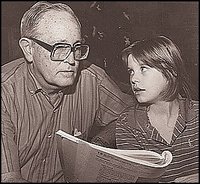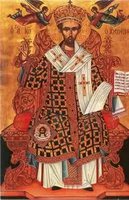The Human Predisposition According to Kant
As a good enlightened thinker, Kant believes that the underlying nature of humans is good. In fact, he begins Religion with a discussion of human nature in light of the obvious evil which Kant claims is empirically evident throughout history. However, in order for man to be considered ‘evil’ is, in effect, not a mere action of evil on the part of man, but rather the action of evil committed would need to be adopted as a maxim. This is not to say that a single act could not be considered evil, or good for that matter, rather Kant is discussing here (in the beginning few pages of Religion) the ‘nature of man,’ and in discussing the nature of man, evil is a maxim that is adopted, not a mere single act per se.
It is important to emphasize that the evil maxim is not something that is merely habitual. Even though repeated acts based on an evil maxim may make it easier to perform subsequent acts (e.g. those who have committed many murders have often said that the second, third, fourth, etc. are easier to perform than the initial one) there are acts (such as murder) that manifest in a single instance that the person has adopted an evil maxim.
Kant affirms this by declaring, "In order, then, to call a man evil, it would have to be possible a priori to infer from several evil acts done with consciousness of their evil, or from one such act, an underlying evil maxim." [Immanuel Kant, Religion Within the Limits of Reason Alone, translated with notes by Theodore M. Green and Hoyt H. Hudson (New York: Harper & Row Publishers, 1960), 16.]
Maxims are, by Kantian definition, principles or guidelines by which an individual’s conduct is guided. For instance if a person has good maxims that person will be good. However, if a person has evil maxims then that person will be evil. Someone might ask, how do we know which maxims are good and which maxims are bad? This, of course, is known through what Kant calls the Categorical Imperative (CI). The CI, as Kant puts it, states, "Act only on that maxim through which you can at the same time will that it should become a universal law." [Immanuel Kant, Groundwork of the Metaphysic of Morals, translated by H. J. Paton (New York: Harper & Row, 1964), 88. There is actually multiple versions of the CI, but the one quoted here is the most appropriate version for this work.In describing the CI John L. Treloar explains, "When people act in accord with this law, they manifest total rationality and personhood by acknowledging obligation and accountability. Consequently, for one to follow this law is the height of morality and freedom." [John L. Treloar, "The Crooked Wood of Humanity: Kant’s Struggle with Radical Evil," Philosophy and Theology (Summer 1989), 344-45.]
Animality, as Kant describes is subsumed under the notion of "physical and purely mechanical self-love." This is considered mechanical in that no reason is needed, it is merely something that is in the human predisposition. Kant says that animality consists of three facets—self-preservation, propagation of the species through sexual impulses (and the care of offspring), and community with other men, or the social impulse—but that these three also have their vices which do not stem from the predisposition itself. Rather these vices—gluttony, lust, and wild lawlessness—are of what Kant calls the coarseness (rohigkeit) of nature. Simply put, these vices are not inherent in the human predisposition. Rather these vices are deviations from natural purposes.
Humanity, as Kant describes is subsumed under the notion of a "self-love which is physical and which compares." Reason is required in this division. While comparison itself is not necessarily bad, it can be a vice. About this Kant declares, "we judge ourselves happy or unhappy only by making comparisons with others." Kant goes on to explain, "This is originally a desire merely for equality, to allow no one superiority above oneself, bound up with a constant care lest others strive to attain such superiority." Thus, the vices which can stem from this division are jealousy and rivalry. This predisposition is based on practical reason which is subservient to other incentives.
The final division is personality. Kant describes personality as "the capacity for respect for the moral law as in itself a sufficient incentive of the will." This division of the predisposition is only good, it can never be evil. Thus, it does not have any vices. In this division the moral law becomes an incentive to the power of choice. Kant affirms this by declaring, "We cannot rightly call the idea of the moral law, with respect which is inseparable from it, a predisposition to personality; it is personality itself (the idea of humanity considered quite intellectually." This predisposition is rooted in reason which is practical itself. Simply put, it is "reason which dictates laws unconditionally."
Regarding these predispositions Kant claims, first, that they do not contradict the moral law and, second, they are also predispositions toward good in that they enjoy observance of the law. Philip Quinn, in assessing these predispositions declares, "Of course no one is morally good simply in virtue of possessing them, for no one is accountable for having them. But since they predispose us toward moral good, whence comes moral evil?"[ Philip Quinn, "Original Sin, Radical Evil and Moral Identity," Faith and Philosophy, (April 1984), 192.] To add to this crucial question one might also ask "why does respect for the moral law sometimes fail to serve as a sufficient incentive for the will?" Of course Kant’s answer to these questions lies in the following section of Religion aptly titled Concerning the Principle to Evil in Human Nature.
[The above is from a paper I wrote for a class at Marquette University called Kant's Philosophy of Religion taught by Father John Treloar - Father Treloar, a wonderful teacher, instilled in me a tremendous passion for Kant's philosophy.]












